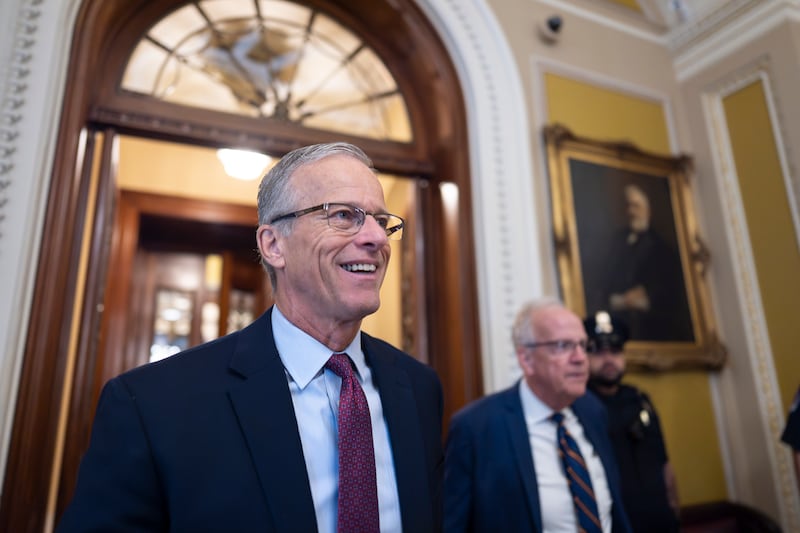WASHINGTON — The Senate confirmed 48 of President Donald Trump’s nominees in a single vote on Thursday after changing decades-old rules earlier this week allowing Republicans to package nominations together to expedite their appointments.
Senators voted along party lines to approve the bloc of nominations, the first of many that are expected to help clear the backlog of nominees that Democrats have created in protest of Trump’s policies. The clustered nominee process will help Republicans greenlight dozens of Trump’s candidates at a record pace, saving weeks of votes and debate time.
“If the Senate had continued at the pace that we’ve been proceeding at through the month of July there would still be hundreds of empty desks in the executive branch on President Trump’s last day in office in 2029,” Senate Majority Leader John Thune, R-S.D., said on Thursday.
Although the nominees were confirmed in partisan votes, Thune defended the bloc process by noting that many of the nominees had received bipartisan support when they were advanced by individual committees.
Among those who were confirmed on Thursday include Kimberly Guilfoyle to be ambassador to Greece, Jonathan Morrison to be administrator of the National Highway Traffic Safety Administration, and Brandon Williams to be under secretary for nuclear security at the Department of Energy.
Senate Republicans managed to change longstanding procedural rules after initiating a process colloquially known as “going nuclear” last week.
The so-called nuclear option is a rarely used maneuver that allows the majority party to change rules with only a simple majority vote rather than the typical requirement of overcoming a filibuster with two-thirds approval. The process has not been invoked since 2019, but now sets a precedent for Republicans as they scramble to approve more than 100 judges who have been waiting at a standstill due to pushback from Democrats.
The so-called “nuclear option” is a veiled reference to nuclear weapons, often considered the most extreme option in any battle. In the same sense, going nuclear in the Senate has the risk of blowing up the chamber.
The nuclear option can be invoked by any senator when they raise a point of order on the Senate floor. At that point, the presiding senator would overrule the point of order because it violates current chamber rules — prompting an appeal that can be overturned with only a simple majority vote.
Thune started this process last week, and the Senate overcame the simple majority vote earlier to approve the rule change.
Republicans pushed to invoke the nuclear option after Democrats deliberately delayed more than 130 judicial nominations in revolt of Trump’s policies. Thune lamented that if the Senate kept going down the current path of obstruction from Democrats, it would require 600 votes to clear the current backlog.
Republicans are expected to continue utilizing the group nominee process, which only excludes nominations for judges and Cabinet positions. The new rule does not limit how many nominees can be packaged together.


